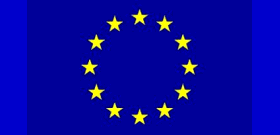 Consequences of the Brexit Agreement on transport, and especially on aviation
Consequences of the Brexit Agreement on transport, and especially on aviation
After intensive negotiations, the European Commission has reached on 24 December an agreement with the United Kingdom on the terms of its future cooperation with the European Union.
The draft Trade and Cooperation Agreement consists of three main pillars:
- A Free Trade Agreement: a new economic and social partnership with the United Kingdom
- A new partnership for EU citizens’ security
- A horizontal agreement on Governance
- A framework that stands the test of time
On transport, the agreement provides for continued and sustainable air, road, rail and maritime connectivity, though market access falls below what the Single Market offers. It includes provisions to ensure that competition between EU and UK operators takes place on a level playing field, so that passenger rights, workers’ rights and transport safety are not undermined.
It should be noted, though, that EU travellers going to the UK after 1 October 2021 will need a passport rather than an ID card. On their side, UK visitors to the EU need a valid passport; visas are required for stays over 90 days in a 180-day period; additional border checks; EU pet passports no longer valid.
More specifically on aviation, these are the consequences of the UK’s choice to leave the EU, Single Market & Customs Union:
UK air carriers no longer participate in fully liberalised EU aviation market: • They can no longer operate passenger and/or cargo flights between EU destinations based on UK-issued licence • They can no longer operate passenger flights onwards to or from the EU (e. g. London- Amsterdam-Bangkok) UK no longer participates in or contributes to shaping standards in EU Aviation Safety Agency
But the EU-UK Trade and Cooperation Agreement provided for the following benefits:
Unlimited point-to-point traffic between EU and UK airports (3rd and 4th freedoms) Member States can agree bilateral 5th freedom with UK for extra-EU cargo (e. g. Paris-London-New York) Cooperation on aviation safety, security and air traffic management Provisions on ground handling and slots (nondiscrimination & access), and passenger rights, on top of horizontal level playing field clauses on environment, social issues and competition
Source: European Commission
Comment
Provisionally applied between 1 January and 28 February 2021 to give parliaments time to vote on the text, the deal announced on 24 December 2020 means there won’t be too much change for passengers at the start of next year (excluding border control issues, and visas for trips of more than 180 days in the United Kingdom): “On transport, the agreement provides for continued and sustainable air, road, rail and maritime connectivity, though market access falls below what the Single Market offers. It includes provisions to ensure that competition between EU and UK operators takes place on a level playing field, so that passenger rights, workers’ rights and transport safety are not undermined“, explains the Commission’s press release.
On aviation, UK airlines (but not their affiliates established in the EU) “will no longer be considered EU carriers and will lose existing traffic rights in the EU. Carriers from the EU and the UK will be able to carry out unlimited passenger and freight transport between points in the EU and points in the UK (“3rd and 4th freedoms”). Ongoing transport (“5th freedom”) will be possible for the transport of goods to/from a third country (eg Paris-London-New York) if the Member States agree bilaterally and reciprocally with the United Kingdom”.
